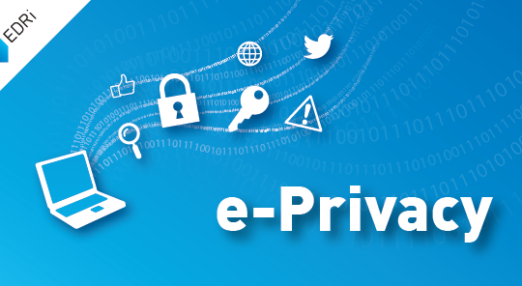Privacy and confidentiality
Filter resources
-

UN Security Council mandates worldwide air traveller profiling
In the name of “preventing, detecting and investigating terrorist offenses and related travel”, all United Nations (UN) Member States should develop systems for processing and analysing Passenger Name Record (PNR), Advance Passenger Information (API) and “fingerprints, photographs, facial recognition, and other relevant identifying biometric data”, according to a UN Security Council resolution (no. 2396) on […]
Read more
-

e-Privacy: What happened and what happens next
With the vote on the mandate for trilogues in the European Parliament Plenary session of 26 October 2017, the European Parliament confirmed its strong position on e-Privacy for the following inter-institutional negotiations, also called trilogues.
Read more
-

Is anti-plagiarism software legal under EU Copyright legislation?
Are anti-plagiarism technologies compatible with copyright law? Surprisingly, this might not be the case. Anti-plagiarism technology involves machine comparison of works such as diploma theses with pre-existing publications. This activity constitutes a use that is covered by copyright. Since no explicit limitation or exception of authors’ and publishers’ exclusive rights authorises providers and users of […]
Read more
-

EU Member States plan to ignore EU Court data retention rulings
Documents made publicly available through EDRi member Statewatch reveal that EU Member States are exploring all possible options to keep, and in fact expand, their current data retention regimes. The general plan is based on a new concept of ”restricted data retention”, which is really blanket data retention with a new name, along with amendments […]
Read more
-

Estonian eID article – additional information
Our article on the problems with the Estonian eID card attracted some criticism and non-specific allegations of inaccuracies. We recognise the sensitivities of the Estonian authorities on this issue, but stand behind the article. For the sake of completeness and to allow our analysis to be verified, here is the timescale that we describe in […]
Read more
-

The Civil Liberties Committee rejects #censorshipmachine
On 20 November 2017, the European Parliament (EP) Committee on Civil Liberties, Justice and Home Affairs (LIBE) voted against the mandatory implementation of “censorship machines” (aka upload filters) in its Opinion on the Copyright Directive proposal. After a long process and diligent hard work led by Polish Members of the European Parliment (MEP) Michal Boni […]
Read more
-

Estonian eID cryptography mess – 750000 cards compromised
In 2017, a flaw causing vulnerabilities in millions of encryption keys, including national Estonian electronic ID (eID) cards, was discovered. A month and a half after the discovery, the Estonian Police publicly announced the vulnerability, but stated that the eID cards “are completely secure”.
Read more
-

Portugal bans use of DRM that limits access to public domain works
With the tendency of becoming too accustomed to bad news on copyright, it is refreshing to hear that Portugal has recently passed a law that helps to strike a fairer balance between users and copyright holders on digital rights management (DRM). The law does not abolish legal protection for DRM altogether – unfortunately, that would […]
Read more
-

Surveillance laws fall far short of fundamental rights standards
On 23 October, the European Union Agency for Fundamental Rights (FRA) published the second volume of its study on surveillance and its impact on fundamental rights. This study comes following the request of the European Parliament (EP) for information on the consequences of surveillance for fundamental rights. The Agency notes that “the mere existence of […]
Read more
-

See which MEPs voted in favour of e-Privacy – and which ones against it
On 19 October, the European Parliament Committee on Civil Liberties, Justice and Home Affairs (LIBE) voted on the proposed e-Privacy Regulation. With 31 votes the Committee voted in favour of measures defending privacy, security and competition for phone and internet services. The 31 MEPs in favour of the e-Privacy Regulation belong to the Alliance of […]
Read more
-

Euro-parliamentarians say a clear “no” to the anti-privacy lobby
On 19 October, the European Parliament Committee on Civil Liberties, Justice and Home Affairs (LIBE) voted on the proposed e-Privacy Regulation. The Committee voted in favour of measures defending privacy, security and competition for phone and internet services. Despite a huge lobbying effort to water down the proposal, the Committee voted for clear, privacy-friendly rules. […]
Read more
-

Extending the use of eID to online platforms – risks to privacy?
On 10 October 2017, the European Commission published the “draft principles and guidance on eID interoperability for online platforms” on the electronic Identification And Trust Services (eIDAS) observatory. Building on the eIDAS Regulation, the Commission would like to extend the scope of use for the eIDs to online platforms, in addition to public services. This […]
Read more
